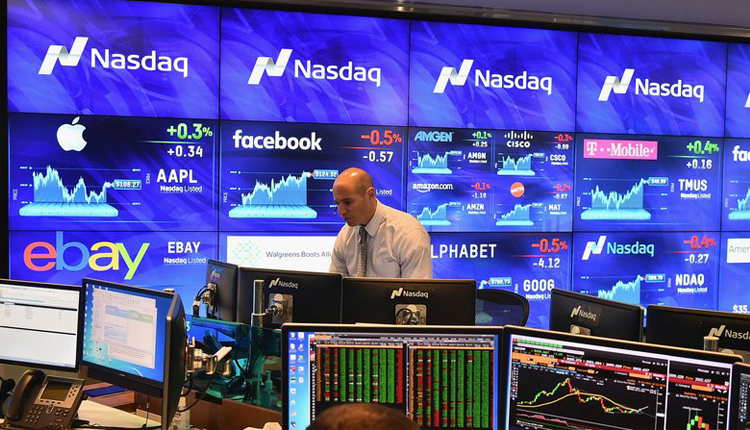The Dow Jones Industrial Average posted slight gains on Friday after the U.S. government released jobs growth data that easily beat expectations.
The 30-stock Dow rose 64.22 points to 25,063.89 as Chevron, Exxon Mobil and Merck all closed higher. The Dow also posted its sixth straight week of gains, its longest since November 2017. The S&P 500 closed 0.1 percent higher at 2,706.53 as gains in the energy and tech sectors offset losses in consumer discretionary. The Nasdaq Composite declined 0.25 percent to 7,263.87 as Amazon shares fell.
The U.S. economy added 304,000 jobs in January, according to data released by the Bureau of Labor Statistics. Economists polled by Refinitiv expect the U.S. economy to have added 170,000 jobs in January. The report follows a 35-day U.S. government shutdown. It also marks the 100th straight month of jobs growth. Investors had been awaiting the report in search of clues about the state of the economy.
However, the report also included a sharp downward revision of December’s jobs gains. January’s wages also grew at a much slower-than-expected pace.
“There were definitely some gives and takes here with this report,” said Bill Northey, senior investment director at U.S. Bank Wealth Management. “Regardless of your perspective, there was something to find in it.”
Friday’s moves come after the major indexes posted sharp monthly gains for the month of January. Last month’s gains were the biggest for the Dow and S&P 500 since October 2015.
Wall Street also digested key earnings from companies like Amazon, Merck and Exxon Mobil. On Thursday, Amazon reported better-than-expected earnings and revenue for the fourth quarter. However, the company issued weaker-than-expected revenue guidance for the first quarter and warned about increasing investments. These concerns pushed Amazon shares down by 5.38 percent.
Merck, meanwhile, posted a better-than-expected profit and revenue, sending its shares up by 2.7 percent. Exxon Mobil shares rose 3.6 percent after the company reported better-than-expected earnings. Chevron also gained 3.2 percent on a stronger-than-forecast profit.
“The word I’m using to describe this earnings season is reassuring,” said Kate Warne, investment strategist at Edward Jones. The reaction to the earnings “is very good because it reflects that investors were more worried than the numbers reflected and companies are being rewarded” for posting better-than-expected results.
So far, more than 45 percent of S&P 500 have reported earnings this season. Of those companies, 68.1 percent have topped analyst expectations, according to FactSet.
“It’s been pleasantly surprising for us,” said JJ Kinahan, chief market strategist at TD Ameritrade. “We would have expected the tariff situation to weigh a little bit more than what it did, but I think the way that it weighed in was in what was unsaid than what was said. We did not hear any CEOs, so far at least, talk about capex spending. That goes back to the uncertainty around tariffs.”
